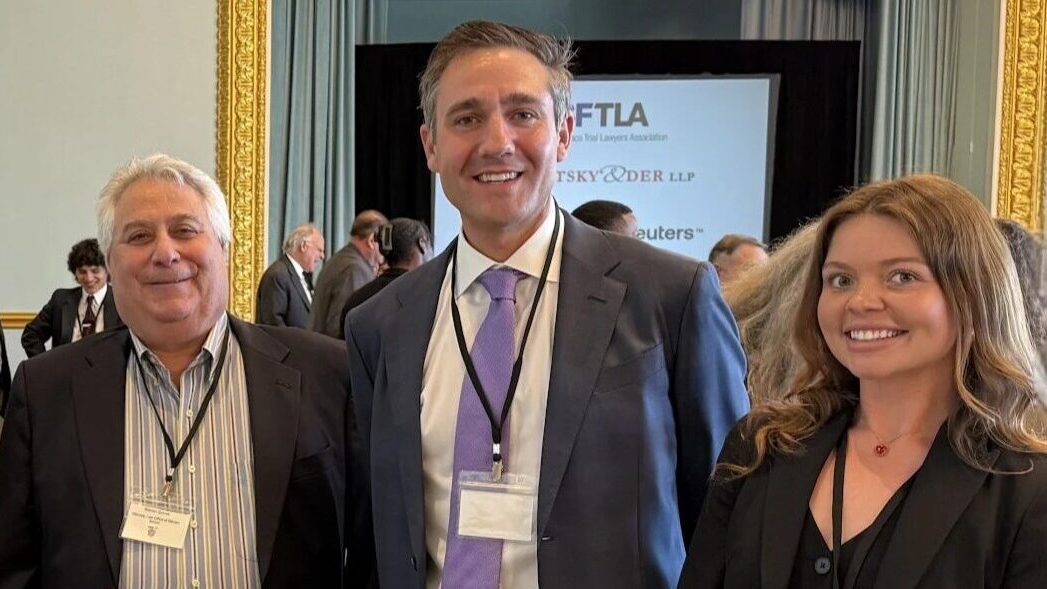A dedicated advocate for justice
For decades, Steven Schorr has stood as a dedicated advocate for justice in California’s criminal appellate courts. A sole practitioner at the Law Office of Steven Schorr, Attorney and Counselor since 1986, Schorr has specialized in criminal appeals since 1989, managing a demanding caseload of court-appointed appeals for indigent clients—all without administrative support.
When local court rules and formatting requirements became more exacting and time-consuming, Schorr needed a way to work more efficiently, so he could focus more time on preparing winning arguments and less on the mechanics of brief preparation. He found his solution in TypeLaw.
Juggling pagination, perfectionism, and practice alone
Operating as a true solo attorney, Schorr handles every aspect of his appellate practice, from record review and issue spotting, to research, briefing, and oral argument. On top of the legal work, he used to take on the mechanical, technical task of formatting his briefs in WordPerfect, including citation marking and generating tables of contents and authorities.
“It didn’t make sense to have an administrative aide,” Schorr explains. “There was always this tradeoff: do I pay someone, or do I just do it myself and work it into my time?”

Though he became efficient at managing formatting in WordPerfect, the process grew more burdensome as the rules of court changed. For instance, when courts began requiring page numbering to start from the cover page, rather than the first page of the brief, it added a new layer of complexity that made tables more complicated.
“Trying to get the page numbers to match up and generate the tables properly—it became a real nuisance, a battle,” Schorr says. “I was even considering hiring someone just for that, since it was a just real pain that was taking up valuable time.”
But as a self-professed perfectionist, delegating wasn’t easy. He needed a better way to handle the technical finalization of briefs—one that would meet his high standard of quality.
Discovering TypeLaw meant not worrying about technical details
Around 2015 or 2016, Schorr received an email from TypeLaw Co-Founder & CEO, attorney Chris Dralla, about TypeLaw’s AI-automated formatting solution for appellate attorneys. Intrigued, Schorr decided to give it a try.
“I didn’t have issues with briefs being rejected for formatting,” Schorr notes. “But I didn’t want to have to think about all the technical details either, to double-check and be concerned about it. With TypeLaw, I knew the final brief would look right and conform to the court’s evolving requirements—all the hassle went away.”
With TypeLaw, I knew the final brief would look right and conform to the court’s evolving requirements—all the hassle went away.
Initially, Schorr used TypeLaw as a full-service solution—sending his draft briefs to TypeLaw for formatting and citation hyperlinking. More recently, he’s transitioned to self-service, using the platform’s brief editor and citation formatting tools himself.
“TypeLaw automatically builds the tables and does all the auto-tagging of citations,” he says. “I still draft in WordPerfect, but I upload the brief into TypeLaw when it’s close to ready and it does the rest. I go through and check the citations and make any corrections, but it’s still a lot less of my time than I previously spent on it.”
Recapturing time and enhancing brief quality
By Schorr’s estimate, TypeLaw has cut down the time he spends on citation marking and formatting by about two-thirds. What once took him three or four hours is now done in about one.
“The time savings I achieve with TypeLaw means I can either work on more cases, or just feel less pressured with the ones I have,” he says. “It helps me get things done and filed more quickly.”
TypeLaw cut down my citation formatting time by about two-thirds. What used to take me three or four hours now takes just one.
More than just saving time, TypeLaw has given Schorr confidence in the professionalism of his filings. “The quality of the work product really stands out. It comes out looking sharp and projects a professional image to the court.”
Even though he tends to work ahead of deadlines, Schorr appreciates that he can rely on TypeLaw to finalize a brief efficiently—especially when timing is tight. “If I’m ever under a time crunch, I know once I plug it into TypeLaw, I can get it out the door, complete and accurate, in a few hours,” he says.
How published opinions can change your practice
Recently, Schorr secured a major win in a high-stakes criminal appeal involving a murder case and attempted murder charges. The case resulted in a published opinion, with two attempted murder counts reversed—cutting 14 years to life off his client’s sentence.
“There were serious instructional error issues,” he explains. “The jury was allowed to find a culpable mental state without the proper findings about my client’s role. It was a partial reversal, and now we’re petitioning for review on the murder conviction, as well.”
While the legal arguments in the case are solely Schorr’s work, he does see TypeLaw as an important part of how his work is presented to the court. “TypeLaw made sure the brief was crisp and professional and presented in the form that the court wants. That reflects well on me—and it makes a brief easier for justices to read and engage with,” he says.
The time savings I achieve with TypeLaw means I can either work on more cases, or just feel less pressured with the ones I have. It helps me get things done and filed more quickly.
The visibility from a published opinion has also amplified Schorr’s reputation. “I’ve had about 40 published opinions over the years,” he notes. “But every time there’s a new victory, especially one with a reported result, you hear from other attorneys. People want to see the briefing to see if they can adapt your argument to their case. I’m happy to share—that’s just how lawyers work.”
Advice to fellow appellate attorneys
For other attorneys, especially those flying solo or juggling a heavy caseload, Schorr offers a strong endorsement of TypeLaw.
“If you want to put out an impressive, high-quality work product that projects a professional image to the court, that grabs a reader’s attention, TypeLaw is really helpful,” he says. “It takes care of the technical details so you can focus on the law.”
If you want to put out an impressive, high-quality work product that projects a professional image to the court, TypeLaw is really helpful. It takes care of the technical details, so you can focus on the law.
Schorr’s story reflects a broader truth in appellate practice: even the most seasoned attorneys benefit from technology approaches that reduce frustration, save time, and elevate the quality of their work. For Schorr, TypeLaw has become a trusted part of his briefing process—quietly handling the technical details, so he can stay focused on winning arguments.


